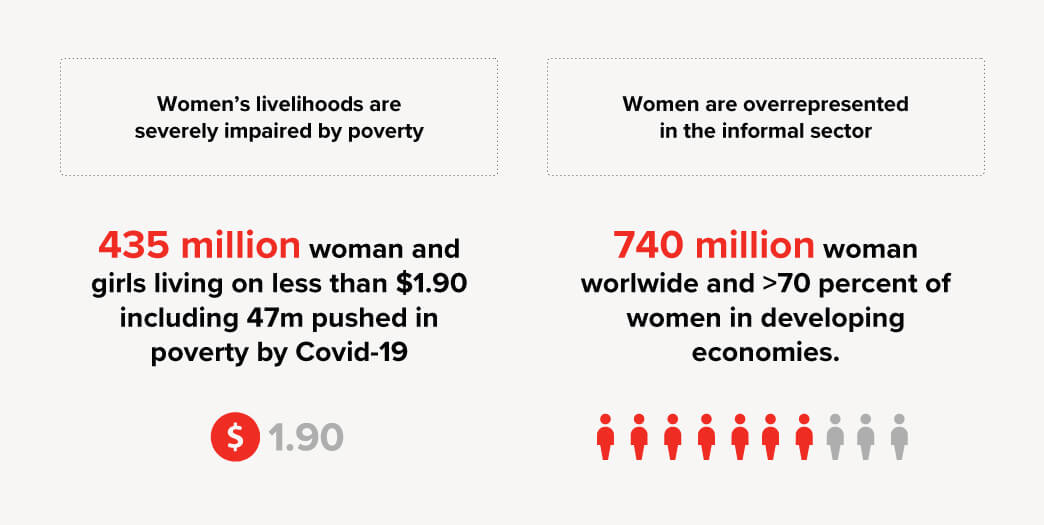Part II
Tackling a new generation of threats to human security
Chapter 3 Technology's new threats to human security
While digital technologies can expand human freedoms, they can also have unintended consequences challenging human security. Chapter 3 explores some of the threats to human security posed by digital technologies First, it explores how common cybersecurity attacks and new technological tools can undermine human security. It then discusses the potential for human rights to be compromised in response to cyberharm and how the increasing reliance on artificial intelligence (AI) algorithms can erode human security. Finally, it discusses how uneven access to technology impacts human security, as seen clearly in the uneven access to Covid-19 vaccines.
Chapter 4 Unearthing the human dimension of violent conflict
Today, conflict levels are up and about 1.2 billion people live in conflict-affected areas, 560 million of them in countries not classified as fragile contexts (figure 6). More people, in more places, are experiencing some variation of conflict, and a majority of the global population feel worried about violence. Chapter 4 aims to center conflict analysis on people, rather than on the contestations. Taking well established conflict-definitions as a starting point, it expands the analysis to look at compounding human security threats and people living in conflict-affected areas. In doing so it shows how a new generation of human security, based on protection, empowerment and solidarity can shed light on blind-spots support the building of just and peaceful societies.
Figure 6 People within 50 kilometers of fighting
Chapter 5 Inequalities and the assault on human dignity
The persistence of inequalities in human development and discrimination have a direct bearing on dignity. Inequalities in human dignity are not just a moral issue but they are globally disestablishing, having direct and practical effects on human development. Chapter 5 dives into the different experiences of horizontal inequalities linked to the overlapping identities. It describes the importance of perceiving humans as agents, not victims, when analyzing the way different social groups experience challenges to human security and structural causes that can lead to discrimination and violence of these groups. And a focus on agency shows how eliminating horizontal inequalities not only is a matter of justice for those discriminated against or excluded, but also enriches communities and society more broadly, because agency is central for broader processes of social change. An agency-focused approach also recognizes that people hold multiple identities at once. That people are simultaneously members of different collectives provides for solidarity to be built across groups over shared values and goals. A foundation of agency enhances space for solidarity as people are better able to reason about, strategize and participate in actions that transform society.
Figure 7 Gender inequality is one of the most widespread horizontal inequalities

Chapter 6 Healthcare systems outmatched by new human security challenges
While the past few decades have seen major improvements in global health by standard indicators; a new generation of challenges has come into play, in the form of pandemics, the predominance of Non-Communicable Diseases and the mismatch between health challenges and healthcare systems. Chapter 6 explores this gap between health threats and healthcare systems’ ability to meet them. To measure the extent to which healthcare systems can be characterized as universal, the report introduces a new Healthcare Universalism Index (HUI). The HUI which is based on a comprehensive concept of universalism, comprised not only on effective coverage but also of two additional components: generosity and equity. The HUI has improved over time: between 1995 and 2017 the world's HUI increasing by almost 8 points. But gaps in universalism between different HDI groups are widening on average (figure 8).
The chapter then covers the uneven recovery from COVID-19, the evolving burden on healthcare systems, how poor healthcare systems foster human insecurity, and the opportunity to create a new generation of human security through universalism. Re-evaluating and reforming health systems with a human security lens reveals that healthcare systems are among the most promising spaces for advancing a new generation of human security strategies.
Figure 8 Progress with inequality: widening gaps in healthcare over time
Conclusion
Permanent and universal attention to an enriched frame of human security can end the development-with-human insecurity pathways that have resulted in the Covid-19 pandemic, climate change, and the broader predicaments of the Anthropocene.
In the Anthropocene context it is imperative to go beyond fragmented efforts to deal with climate change, biodiversity loss, conflicts, migration and refugees, pandemics, and data protection. To pay systematic, permanent, and universal attention to solidarity – not as optional charity, but as a call to pursue human security using 'the eyes of humankind'.